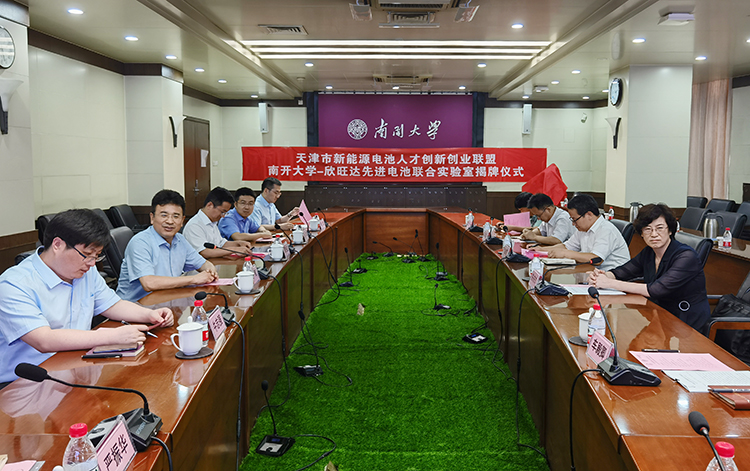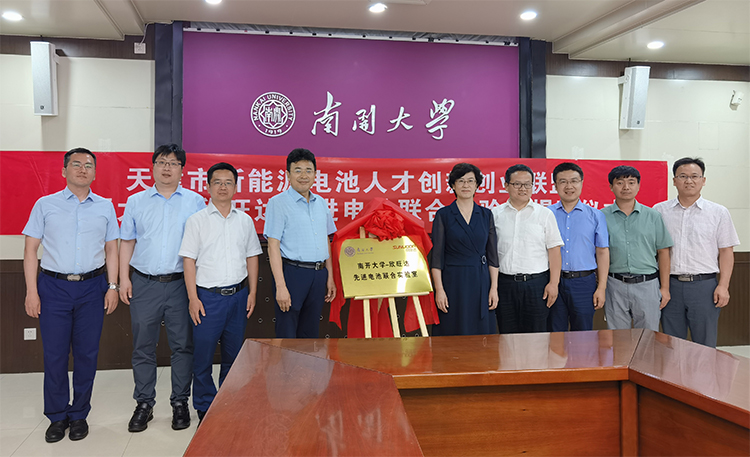Nankai University-Sunwoda Advanced Battery Joint Laboratory was Launched

On July 30th, the inauguration ceremony of the Nankai University-Sunwoda Advanced Battery Joint Laboratory of Tianjin New Energy Industry Talent Alliance was held in Tianjin and Shenzhen via video link. Chen Jun, Academician of the Chinese Academy of Sciences and Vice President of Nankai University and Director of the Alliance, Chen Dongjie, head of the Organization Department of the CPC Nankai District Committee of Tianjin attended the ceremony in Tianjin. Liu Yunhong, Director of the Science and Technology Innovation Bureau of the Guangming District of Shenzhen, and Wang Mingwang, founder of Sunwoda Electronics Co., Ltd., attended the ceremony in Shenzhen and jointly unveiled the plaque for the joint laboratory.
Since the establishment of the Tianjin New Energy Industry Talent Alliance on May 21st, nearly 40 companies have applied for joining the alliance, covering various fields of research and development, production, application, and recycling of new energy batteries and materials. Nankai District and Nankai University have signed a cooperation agreement to jointly promote the in-depth cooperation and integration of government, industry, university, research, and application to create an innovative and entrepreneurial consortium, integrating scientific research, technological development, achievement transformation, and entrepreneurial incubation. Under the influence of the alliance, cooperation channels and networks with new energy companies across China have been initially established. The establishment of the Nankai University-Sunwoda Advanced Battery Joint Laboratory represents an important achievement of the alliance.

It is reported that the cooperation between Nankai University and Sunwoda has been regarded as a key program of the Tianjin New Energy Industry Talent Alliance. The inauguration ceremony of the joint laboratory is an important milestone for the cooperation between the two parties to enter a substantive stage. As an innovation consortium, the alliance will demonstrate its unique advantages in leading the high-quality development of the economy in terms of promoting the implementation of high-end projects, gathering innovative elements, and deepening school-site cooperation and industrial coordinated development, thus to serve China’s carbon neutral strategy.
(Reported by Kai Zhang, translated by Xinghua Li)









